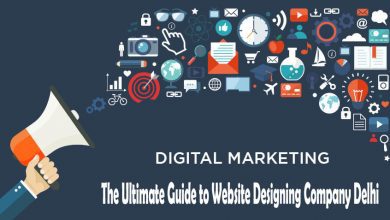The Benefits of Search Engine Marketing – Why SEM is Important

Search engine marketing is important for businesses of all sizes, but what exactly is it and how can you best utilize it for your marketing strategy?
We’re going to discuss the benefits of search engine marketing, particularly regarding SEO (search engine optimization) and PPC (pay-per-click).
Search engine marketing (or SEM) is a now popular concept in online marketing. In order to understand why SEM is important, it’s crucial to understand the benefits it offers for businesses online.
Let’s start by explaining what SEM is.
Search Engine Marketing refers to a variety of techniques and strategies a company can use to generate more visitor traffic from search engine results pages (SERPS) to a website. The goal of SEM is to promote a website’s visibility using paid search, contextual advertising, and organic search rankings. Basically, SEM is a broader concept that includes both SEO and PPC together – in a general sense it’s a marketing strategy that involves managing a brand or website’s total presence in search engines.
Typically SEO only involves organic optimization strategies that are designed to improve a site’s performance based on Google or Bing’s ranking algorithms. If a site is set up properly and optimized correctly then it can naturally bring in traffic through search results. But SEM means taking advantage of all the marketing tools available in search engines – including the paid ad results at the top of the SERP.
Check out our infographic guide on SEO vs. SEM marketing to learn more about what these terms mean.
We’ll also go over why SEM is important in light of how it can help drive revenue and sales through search engine optimization and paid search. Separately these two strategies can offer great results, but together they become a powerful source of sustainable success.
The Benefits of Search Engine Marketing
There are many benefits of using SEM for your business. For example, by increasing your online presence, you also enhance your brand awareness and visibility. This, in turn, leads to online leads and generates sales (which obviously allow you to make money by selling products and services). Similarly, you can provide informative content for your visitors, which they may not be able to find anywhere else.
Business owners often wonder which is a better form of marketing to invest in SEO or PPC. However, SEM isn’t really a matter of which technique is better, but rather which is more applicable to your circumstances and budget at the time. You’ll likely discover that both organic and paid marketing is worth investing in, as using them simultaneously will help your business thrive more than if you only relied on one technique and ignored your other options.
Organic SEO
Organic SEO is great for long-term growth, and PPC is ideal for businesses that want results fast.
Many websites and business owners choose to begin with SEO since it is often more cost-effective than other marketing tactics. Statistically speaking, 41% of marketers worldwide say they get the highest ROI from SEO. By 2019, organic search engine results were generating 65% of website traffic. Plus, roughly 64% of marketers are now investing efforts into SEO, meaning that the majority of your competitors could be taking advantage of one of the most successful methods of business growth.
With a little research and basic website skills, you can even do some aspects of SEO on your own, assuming you have the time to devote to it. Also, traffic that’s driven directly from organic search doesn’t cost anything, while traffic from PPC has a cost for each click.
Quality SEO
By working on quality SEO, you can create credibility and trust by branding your business as a reputable place for visitors to find the products and knowledge that you provide. As you prove to Google and other search engines that your site should rank for relevant keywords that accurately describe your products, you should naturally gain a higher rank in SERPs. Organic optimization isn’t a quick endeavour, but as you build a positive reputation and keyword growth, traffic should naturally increase in turn and is more likely to be consistent.
It’s also worth noting that organic search opportunities are now expanding to include Google Shopping, the search giant’s massive answer to eCommerce marketplaces like Amazon. Google Shopping organic and paid results are a critical opportunity for eCommerce brands looking to boost their sales reach using SEM.
Why SEM is Important with Ads
Many marketers think PPC isn’t worth it. But they are missing out.
Typically PPC will only provide your website sustainable traffic so long as you continue paying for it. It’s also worth mentioning that, in most cases, users tend to click on highly placed organic listings over ads. Also, there are many new search queries every day. It seems like it become expensive to invest in PPC marketing for all of the relevant keywords you wish for your website to rank for.
So why do PPC? Because you’d be missing out if you didn’t.
PPC has a wealth of benefits as well. Paid search results dominate above-the-fold content, with typically four ads on desktop and three on mobile, users will always see paid ads before organic search results. (Good SEM can get your brand into both spots).
Advantages of search engine marketing with PPC
One of the advantages of search engine marketing with PPC is that it can provide near-immediate results, with fast ROI for businesses that want to grow their traffic quickly and capitalize on a short-term window.
Along with improved visibility, PPC ads allow you greater control over how to present your marketing messages and products. While search engines will often decide how organic search results display, you are more in control over calls-to-action, pricing, bullet points, and other aspects of your PPC ads. Google also allows you the option of Product Listing Ads (PLAs), a visual shopping ad that lets users see an image of what they will be clicking on. This greatly improves the click-through rate.
PPC search engine ads help bring in an average of $2 for every $1 spent. In fact, small businesses that use advanced SEM tools and ads strategies experienced revenue growth in the previous year that is up to 4X higher than less digitally advanced businesses. One of the key benefits of search engine marketing for businesses is that paid ads offer better CTR and higher conversions than more passive forms of marketing.
PPC is more easily customized
Because PPC is more easily customized, it allows you to target specific keywords intended for your target audience. You can also customize your ads to appear based on time of day, day of the week, geography, language, device, and audiences based on prior visits. This ability to customize your ads allows you to really hone specific products and services to the ideal audience. Likewise, you can really push certain products to appear during certain times of the year when they are highly relevant, further increasing click-through rate and conversions or sales.
Though ROI for PPC varies depending on your business, campaign, and budget, the median return on investment can be as much as 23%, putting it above traditional display ads. When it comes to online business, PPC delivers great results when compared to other types of digital advertising.
Ideally, a business should use SEO and PPC together. Though they both have their share of pros and cons, they work best when utilized together. Except for the most well-known businesses, a company probably won’t make a lot of headway relying solely on its own SEO efforts. Likewise, most small businesses would struggle to have the PPC budget to compete with larger entities. Using them simultaneously allows them to further play off their strengths and gives your website a greater range of visibility across SERPs.
Google Shopping
Recently, Google Shopping opened up free, organic product listings in an attempt to better compete with Amazon in product searches. Amid the Covid-19 pandemic, many brick-and-mortar businesses have had to rely more on E-commerce marketing, so this update will be highly beneficial. This change has allowed free exposure for retailers and allows advertisers to increase their paid advertising campaigns with free listings supplementing them. With this update, paid shopping ads will appear on the top and bottom of the page on the Google Shopping tab.
Now, this doesn’t mean that you should reduce the paid marketing strategy you’ve established for your business. Instead, this is another way to increase your SEM strategy by adding another layer to it. By uploading your ads to Google Merchant Center and opting-in to “surfaces across Google,” you become eligible for organic visibility. It’s not a replacement for traditional SEO or PPC, but rather another way for you to market your business, products, and services under the SEM umbrella.
PPC and SEO together
By using PPC and SEO together, you increase your overall click-through rate by targeting more keywords and reaching a larger audience. High-cost, high-volume keywords can be moved from PPC to organic search. Though it may take longer for your site to rank for highly competitive keywords, your budget won’t suffer trying to bid for them.
Also, because you can do A/B testing of PPC ad copy, that information can be fed into your organic listings and landing pages. You’ll have a greater idea of which types of ads, ad copy, and keywords get the highest click-through rate, information that can be translated into SEO.
By testing in PPC first, you can experiment with your keyword strategy before committing to long-term SEO strategies that will require more time and patience to see growth.
Overall, there are many benefits of search engine marketing for businesses. By utilizing the strategies we’ve listed, you can increase brand awareness and click-through rate across more channels by investing in organic and paid searches together.
With paid ads at the top of SERPs and high-ranking organically generated links below your ads, users have more opportunities to find your products and services. By investing time, money, and energy into a range of SEM strategies now, you can set your website and your business up for success over time.





